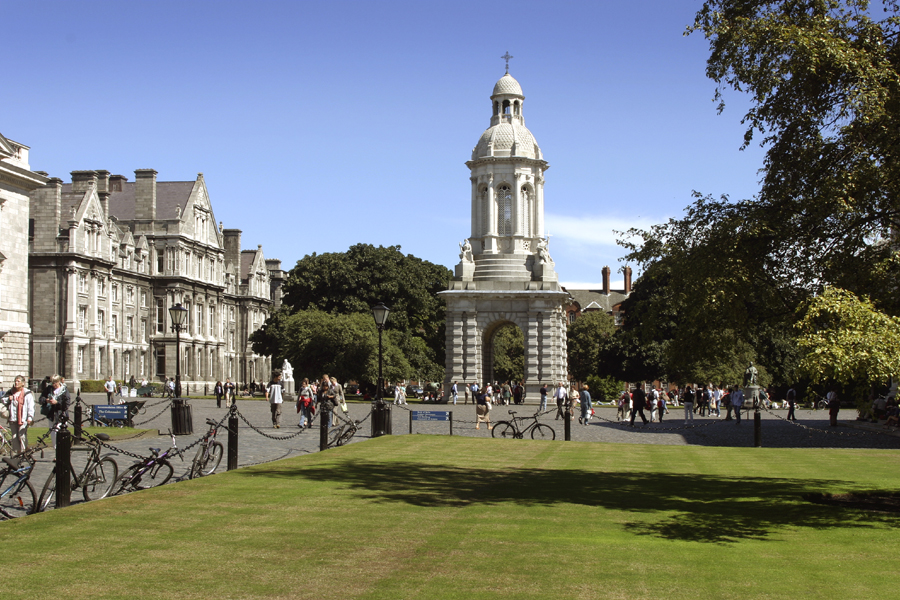
Just under a third (31%) of women who took part in the survey said they have experienced unwanted physical contact while studying at Trinity or in a Trinity social setting, compared with 8% for men. One in 13 respondents – 8% of women and 7% of men – reported having been stalked or subject to obsessive behaviour. 42% of female students and 8% of male students said that they had experienced verbal harassment, while one in 20 respondents said they have been physically mistreated by a partner.
The study also reveals a worrying lack of awareness about sexual consent campaigns, with only 31% of women and 32% of men saying they had heard of any consent campaigns before.
In a statement to Trinity News last night, Ian Mooney, SU welfare officer, said the figures point to the need for student education on the issue of sexual consent. “Although phrases such as ‘non-consensual sexual experience’ may be somewhat ambiguous in meaning, the fact that such a large number of people feel that they have had one speaks volumes on an issue that’s not commonly discussed,” he said.
Ellen O’Malley-Dunlop, CEO of the Dublin Rape Crisis Centre, today told Trinity News that said she was shocked by the figures. “They certainly seem to mirror what is happening in American universities,” she said.
Mandatory consent workshops
Trinity News understands that Mooney is now seeking to introduce mandatory sexual consent workshops for students. In an agenda sent around to class representatives on Sunday ahead of tonight’s SU council meeting, he reports having consulted Oxford and Cambridge representatives about their own compulsory workshops. “They’ve told me what’s been good and what’s been bad, the troubles they faced,” he says. “The ultimate goal here for the year would be to introduce something similar for Trinity and hopefully avoid the troubles that they faced.”
Mooney is also meeting officials from the Free Legal Advice Centre (FLAC) and the Dublin Rape Crisis Centre to discuss the study’s findings and the possibility of collaborating on a sexual assault booklet or campaign.
First comprehensive Trinity study
His survey is the first ever comprehensive study of students’ experiences of sexual assault and harassment in Trinity College.
It follows a landmark study, “Say Something”, published by the Union of Students in Ireland (USI) in September 2013, which found that 16% of students – and one in five women – in Irish third-level institutions have experienced some form of unwanted sexual experience, with only 3% of victims having reported it to gardaí. Most perpetrators of sexual assault were acquaintances of the victim. The USI survey, which polled 2,750 third-level students, also found that one in 10 female respondents and 5% of male respondents said they had been the victim of obsessive behaviour.
USI president, Laura Harmon, who was USI vice-president for equality and citizenship at the time of the release of its “Say Something” survey, last night told Trinity News that the Trinity figures were “broadly in line” with its own findings. She is said there is a need for Irish universities to improve its protocols when it comes to dealing with sexual assault. “There is no standardised policy for higher-education institutions,” she said. “There should be standard procedures for when students report incidents to staff.” Harmon added that it is an issue she is currently working with minister for education Jan O’Sullivan on.
If you have been affected by any of the issues raised in this article, you can get in contact with Ian Mooney ([email protected]), the Trinity student counselling service (01 8961407) or the Dublin Rape Crisis Centre’s 24-hour helpline (1800 778 888).
Update, 16:05, 20/01: In a statement, College said it is “committed to the implementation of its policy of Dignity and Respect and in providing an environment where every student and member of staff is treated with dignity and respect.” It said it is “taking the findings of this survey very seriously and will work with the Students’ Union in addressing the problem which unfortunately it would seem is an issue across Irish campuses as the USI survey shows. Specifically in relation to any student who has been the victim of a sexual assault or rape, it is College policy to encourage them to immediately report such incidents to the Gardai for investigation and it fully cooperates with the Gardaí when they are investigating any such incidents.”






